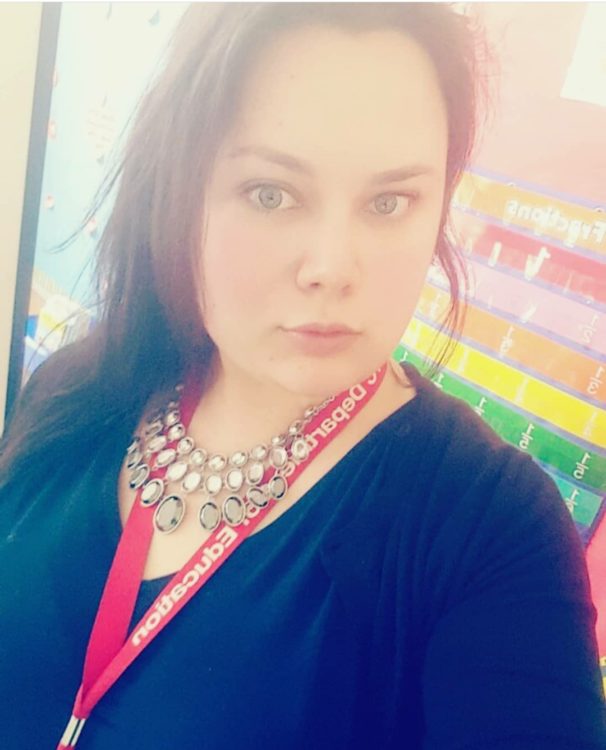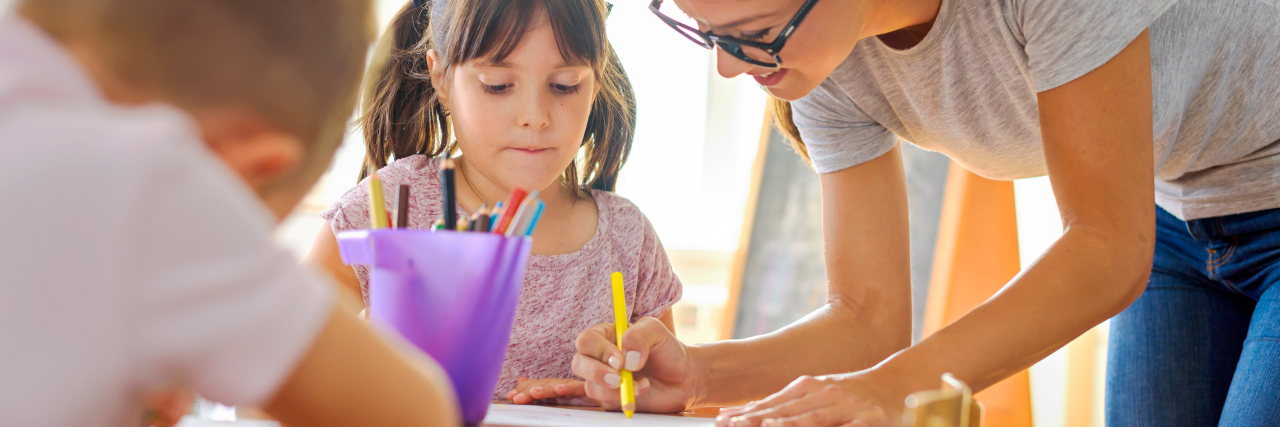Becoming the Teacher I Needed as a Lonely Child With Learning Disabilities
“They tried to bury me, but they didn’t know that I was a seed.”
As a special education teacher for students with learning disabilities and developmental disorders, and as a neurodivergent individual myself, this quote defines my life.
I was formally diagnosed with nonverbal learning disorder (NVLD) at 23 years old. As a child and teen, I struggled in ways that most people cannot possibly comprehend.
When people think of learning disabilities, they often picture a child with dyslexia or dysgraphia who cannot read or write very well. They do not envision an intelligent and articulate child for whom tying shoes or making a paper fit into a folder is arduous at best.
Many of my teachers resented me. To them, I was arrogant, lazy and too “normal” to be disabled in any capacity. They saw my strengths but did not recognize the unimaginable visuospatial and motor deficits that made it difficult for me to do many “everyday” things like button a shirt, copy from a board or count change.
I failed gym every year. I could not figure my way out of a paper bag or navigate a hallway without getting lost. I also had few, if any, friends. Social situations baffled me, and I’d experience debilitating anxiety. Relentless bullying didn’t help either.
Many times, I felt like I did not belong on this planet, as I did not feel any sense of normalcy in the slightest. My neurodivergence was more than a mystery; it was a scarlet letter.
Home was unfortunately no different. Family is supposed to provide a safe haven at home, where your loved ones understand and validate you. But my home life was actually my greatest source of unhappiness and angst. It was an environment that was toxic and detrimental to my self-worth. The criticism, labeling and the manner in which my aspirations were used as a comedy skit was destructive. I can vividly remember the comments made about my character, capabilities and what my future looked like. I felt like an albatross.
As my condition became increasingly frustrating for adults to navigate, my relationships became tenuous. Day after day, I was essentially told that I was worthless, that I would end up in a “group home,” and that my dreams were a dead end.
“You will never be a special education teacher,” they would taunt. “You’re special ed yourself.”
I vividly remember struggling one time to join papers with a paper clip, and the roaring laughter from adults in my family as they watched me.

On many days, I felt like I did not have the strength to go on. But each time I fell down, my dad was there to offer his hand. He was the only family member or friend who continued to support me, no matter what.
In school, my only sanctuary was my math teacher, Ms. Pappas. She validated me every single day and made me feel special. She told me that she envisioned me teaching very young students because I was kind – words I still remember.
I wanted to be another Ms. Pappas and change lives by the dozen. So I made up my mind: I was going to go to college to be a special education teacher and rescue other students like myself.
The more cruelty I experienced at home, the more it ignited a fire in me. I knew my college degree would be my escape to finally free myself from the never-ending barrage of negative comments.
I was accepted into college with a full list of accommodations. I was missing so many pre-requisite, fundamental skills (like basic addition and subtraction) stemming from a childhood without a proper diagnosis, that I enrolled in tutoring and therapy. College was difficult, to say the least, and my struggles stretched beyond academics.
Finally, in 2013, I graduated and started my rewarding career as a special education teacher.
Every day I teach, I feel I am exactly who I needed in my life when I was a child.
My philosophy as a special educator is this: Before learning can begin, students need to feel successful, empowered and loved. Anything less is counterproductive — and uncaring. I need my children to feel safe in the classroom so they will take on challenges and grow. Because of this, I do not hand out “failing” grades. I strive instead to create an environment where students know they will be successful, no matter what. It’s the environment that would have provided safety and success for me as a child — one that is encouraging, warm, and free of judgment or anger.
I know my approach works. I am often rated as a highly effective educator, and I’m commended by parents for the impact I have had on their children academically and emotionally.
If my students take one lesson from me, it is that they are not their diagnoses or disabilities. In spite of any challenges in front of them, they can and will achieve success in whatever they choose. I want them to know that I will cheer for them as they conquer every mountain, and that I hope to be witness to it all.
Children will forget what we taught them, but they will never forget what we said and how we made them feel during their most impressionable years.
To my readers, please know that you are not your disability or the limitations others have foisted upon you. You are capable of making every dream a reality even if it takes more time or an unconventional route.
Saturate yourself in your strengths, not your weaknesses. Remove negative people from your life and fiercely go in the direction of your dreams. That’s what I’ve had the honor of doing – proving all of my doubters wrong along the way. Additionally, I’ve learned to surround myself with people who speak positivity into existence while understanding my weaknesses.
Today, I am a teacher and a mentor for other people in the field of learning disabilities. I’ve even presented at conferences for learning disabilities. I am, at last, the champion I needed most as a girl — the child who couldn’t tie her shoes but ended up changing lives nonetheless.
Getty image by Lordn.

